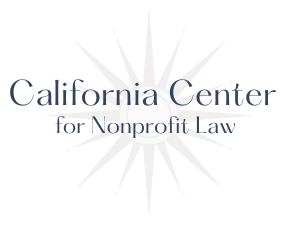
Supreme Court Supports Catholic Charity in Tax Exemption Case
On June 5, 2025, a unanimous U.S. Supreme Court held that the state of Wisconsin impermissibly discriminated against a Catholic charitable organization based on religion when it refused to allow the organization the same exemption from state unemployment tax that it allowed for churches, religious schools, and some religious groups. As a result, the Court ruled that the state violated the U.S. Constitution in denying the Catholic organization the tax exemption. The case is Catholic Charities Bureau, Inc. v. Wisconsin Labor & Industry Review Commission, 605 U.S. _______ (2025).
The Tax Exemption Case
Almost ten years ago, Catholic Charities Bureau, Inc., sought an exemption from paying the state’s unemployment tax for its employees. The tax law exempts from the definition of “employment” anyone working for an organization primarily operated for religious purposes, thus exempting those organizations from paying unemployment tax. However, after a series of conflicting decisions by state administrative and judicial systems, a state labor commission rejected Catholic Charities’ argument that its organization fell within the exemption, finding that although the organization’s motivations may be religious, the group’s activities are secular.
On appeal, the Wisconsin Supreme Court upheld the labor commission’s decision, finding that group was not “primarily operated for religious purposes.” In its ruling, the court pointed out that employees of the organization do not try and expose program participants to the Catholic faith. Furthermore, the organization employs and provides services to individuals of all faiths.
Catholic Charities appealed to the U.S. Supreme Court, and it reversed the Wisconsin Supreme Court’s decision. In her opinion, Justice Sonia Sotomayor characterized the Wisconsin court’s ruling as textbook denominational discrimination. Even though Catholic Charities’ activities are religiously motivated, the lower court nonetheless refused to apply the religious exemption because it does not proselytize and serves people of all faiths. However, the Catholic Church prohibits proselytizing and limiting its services only to Catholics. The state’s action in denying the exemption constitutes a denominational exemption because it distinguishes between religions based their theological beliefs and practices.
Sotomayor further explained that the state government’s interpretation of its tax exemption law as applied to Catholic Charities is subject to strict scrutiny, the most stringent constitutional test. Under a strict scrutiny inquiry, the law must serve a compelling government interest and be narrowly tailored to advance that interest. Wisconsin argued that it has a compelling interest in providing unemployment compensation for its unemployed citizens, but Sotomayor pointed out that the state’s scheme is underinclusive, as it contains 40 different types of “employment” exemptions, including for groups like Catholic Charities that are part of churches, but not separate religiously based non-profit organizations.
The state also argued that it had an important interest in not getting involved in employment decisions related to religious faith and doctrine. However, as Sotomayor noted, the law applies to churches, including their employees whose jobs are wholly unrelated to religious doctrine, such as church custodians.
Frequently Asked Questions (FAQ)
What is strict scrutiny?
Strict scrutiny is one legal test that courts use to determine whether a law, or state’s interpretation of a law, is constitutional. This test is the most stringent of the constitutional tests, in that it asks whether a law serves a compelling government interest and is narrowly tailored to advance that interest.
Why does strict scrutiny apply to the Catholic Charities case?
In this case, the U.S. Supreme Court applies strict scrutiny to Wisconsin’s interpretation of its tax law concerning Catholic Charities because the state is applying the law differently to religious denominations based on their theological differences.
What part of the U.S. Constitution does the Catholic Charities decision address?
The U.S. Supreme Court considered whether the Wisconsin Supreme Court ruling interpreting a state tax law violated the Establishment Clause of the First Amendment to the U.S. Constitution, which supports the Free Exercise Clause. The Establishment Clause requires government neutrality between religions. Therefore, if a state makes a decision that distinguishes between religious denominations, its decision is subject to strict scrutiny.
Contact Us Today for Legal Advice and Assistance
The California Center for Nonprofit Law concentrates its practice on legal matters that affect churches, charities, and other nonprofit organizations in California. Our unique focus enables us to stay ahead of evolving local, state, and federal laws and policies as they develop over time. We are here to represent the interests of your nonprofit organization throughout every stage of your legal matter. Contact us at (949) 892-1221, email us at info@NPOlawyers.com, or complete our online contact form to schedule a consultation about your nonprofit organization today.
